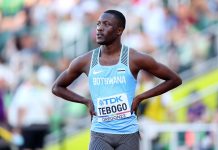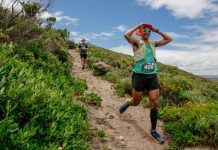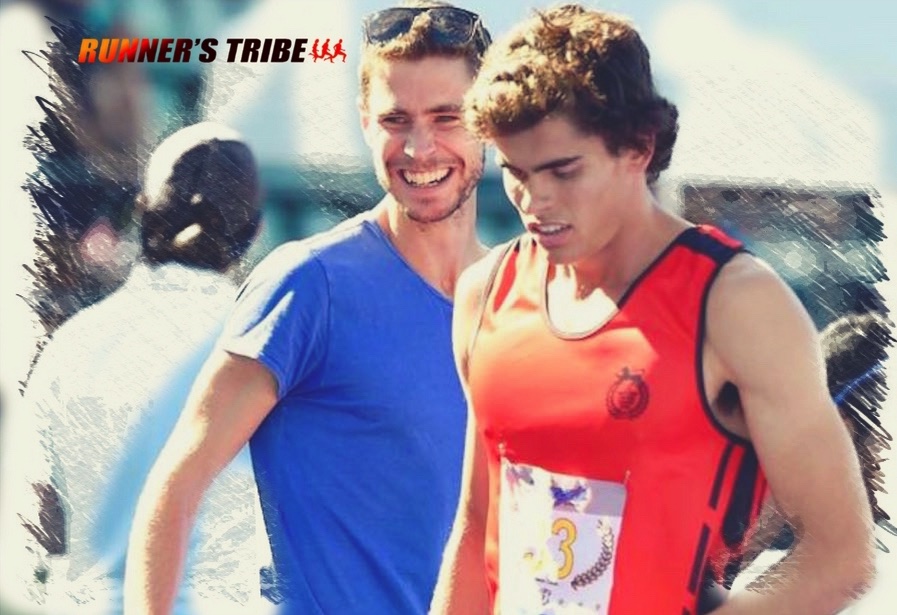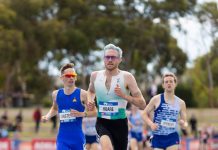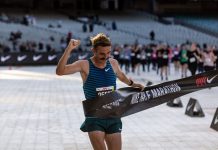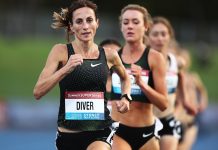Runner’s Tribe caught up with the latest coach to hit the Sydney scene, Ben Liddy. Liddy has a lot going for him; awesome middle distance runner, passion to burn, one of Sydney’s leading physiotherapists, ok bloke, and now coach to a growing crew of rising young stars.
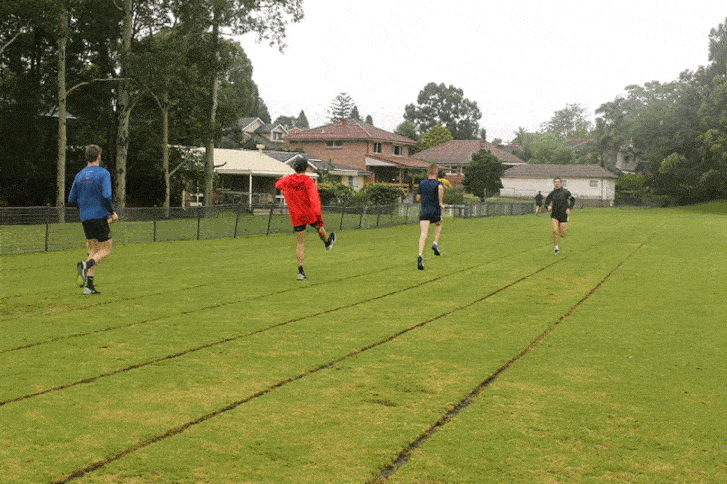
Ben, good to have you on Runner’s Tribe. Where is your group located in Sydney? What specific training locations do you mainly utilise?
Our training base is Rotary Athletic Field in Lane Cove North. We are there every Tuesday and Thursday evening. Most Saturday mornings you will find us at Macquarie hospital doing some form of longer hill rep work. We also like to use Centennial Park and have just started to use Lane Cove National Park to mix things up a little.
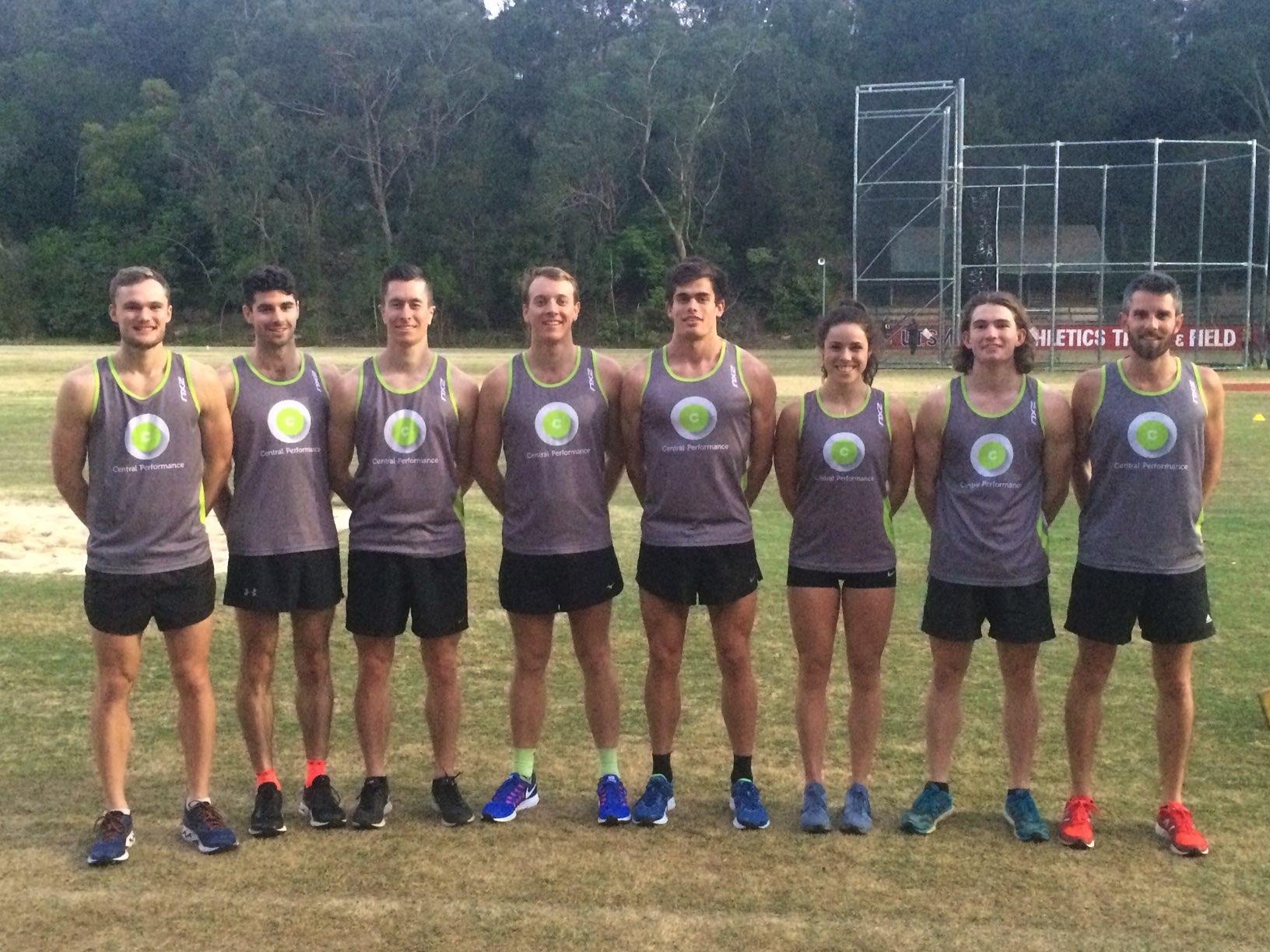
Your focus, is it 800/1500 mainly, or anywhere from 800 to the marathon?
I’d say the majority of the group are 800/1500 runners but I also have a couple of very talented 400 runners and I’m really enjoying the challenge of working with them. In the near future the focus will also move towards the 5 and 10k as we have a young talented distance runner joining the group.
I’d love to coach anywhere from 400 to the Marathon. I’ve written many programs for people running distances from 10k to Marathon but never worked closely with them on a day to day basis like I do with our current group.
Was coaching always the plan post track career?
Yes, absolutely. I’ve been very fortunate to have some fantastic coaches in my time and I always knew I’d get into coaching when I thought my time was up competing on the track. I really try and coach in a style that reflects the traits that I thought were important in the coaches I had. Obviously you have to adapt to the different type of individuals you have in the group but I think there are key traits a coach must possess to gain the trust of an athlete, which is crucial for long-term success.
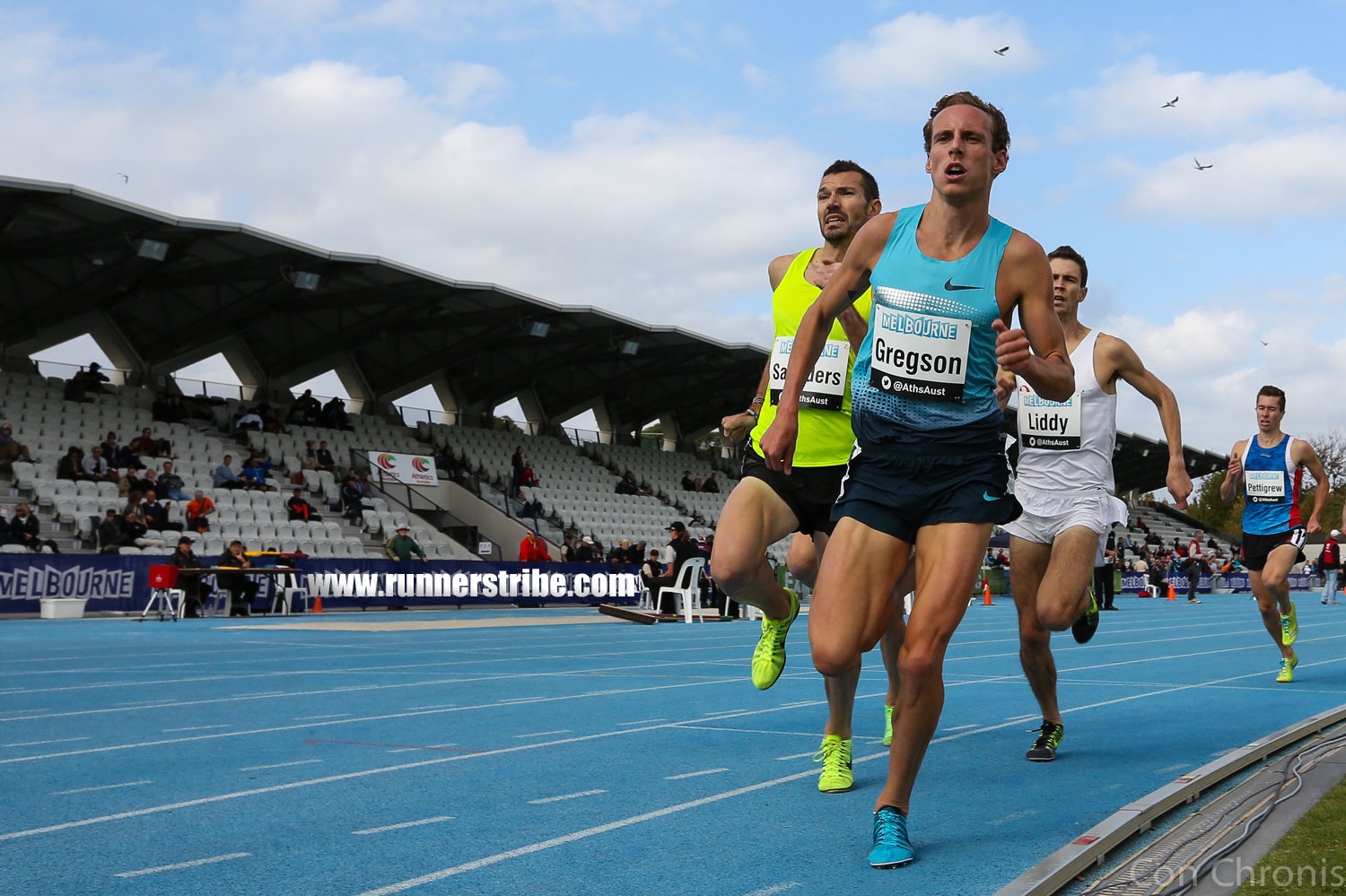
Do you coach just elites or joggers/ fun runners as well?
The group that train together Tuesday, Thursday and Saturdays are higher level athletes but I also coach a group of older runners that target the fun run events. I coach them 3 lunch times a week from work around Surry Hills. They are a great group and work very hard to try and improve their times each year. On top if this I have some online athletes who target events from 10k to the marathon.
Any coaches you look up to or wish to emulate?
My 2 biggest coaching influences would be Clive Cokayne and John Atterton. Clive was my first ever coach and I was very lucky to spend 10 years with him. He coached the Cumberland Ryde Hornsby Club and I cannot speak highly enough of him. He is someone I still talk to and update on how my squad are going and to get his advice on any particular issues I may have. His coaching heavily influenced my own coaching philosophy.
Similar to Clive I cannot speak highly enough of John Atterton. He has an incredible record of coaching middle and long distance athletes. He balances all the training elements necessary for success and as long as you complete all the required training you’ll run well under his guidance.
If you had to categorise your training philosophy for 800/1500. Is it more of the Coe style or Lydiard?
More Coe Style. I believe in never being too far away from where you want to be at the end of the season. Our group are always working at a variety of intensities throughout the year so we’re never too far away from being in good racing shape.
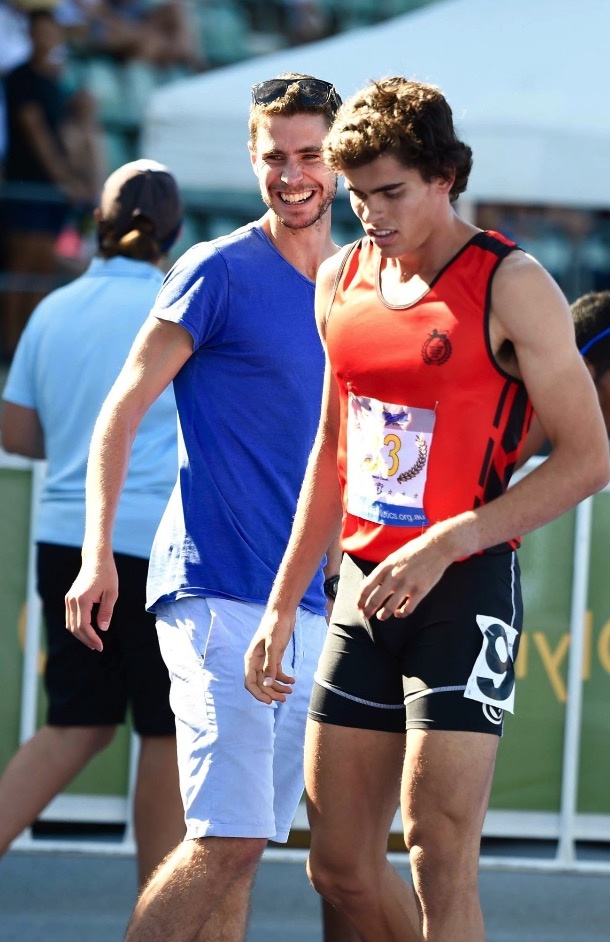
Your main hopefuls for this coming season?
After his success last season I’m obviously hopeful Mason can make another jump. However he is young and still has a lot of time so we won’t be taking any risks with his training. I’m looking for his training load to gradually increase over the next 4 years to target the Tokyo Olympics. We are both expecting success between now and then but the priority will be on keeping him healthy while gradually increasing his training load. You can’t improve if you’re injured and it takes years of consistent training to get to the level he wants to be at so we just need to be patient.
I also expect a young 400m runner from my group Allie Bartholomew to have a breakthrough season over 400m. She had last season off and was over at college in America not really running but she is back now and I’m confident she will rewrite her 400m PB many times this season. However, there are no guarantees in athletics so like Mason the priority will be on keeping her injury free. If we achieve this the results will come.
Honestly, I hope and expect everyone from our group to run personal bests this season. They are all young enough to be constantly improving with correct training so long as they stay healthy and complete the required work; I think they’ll all run well.
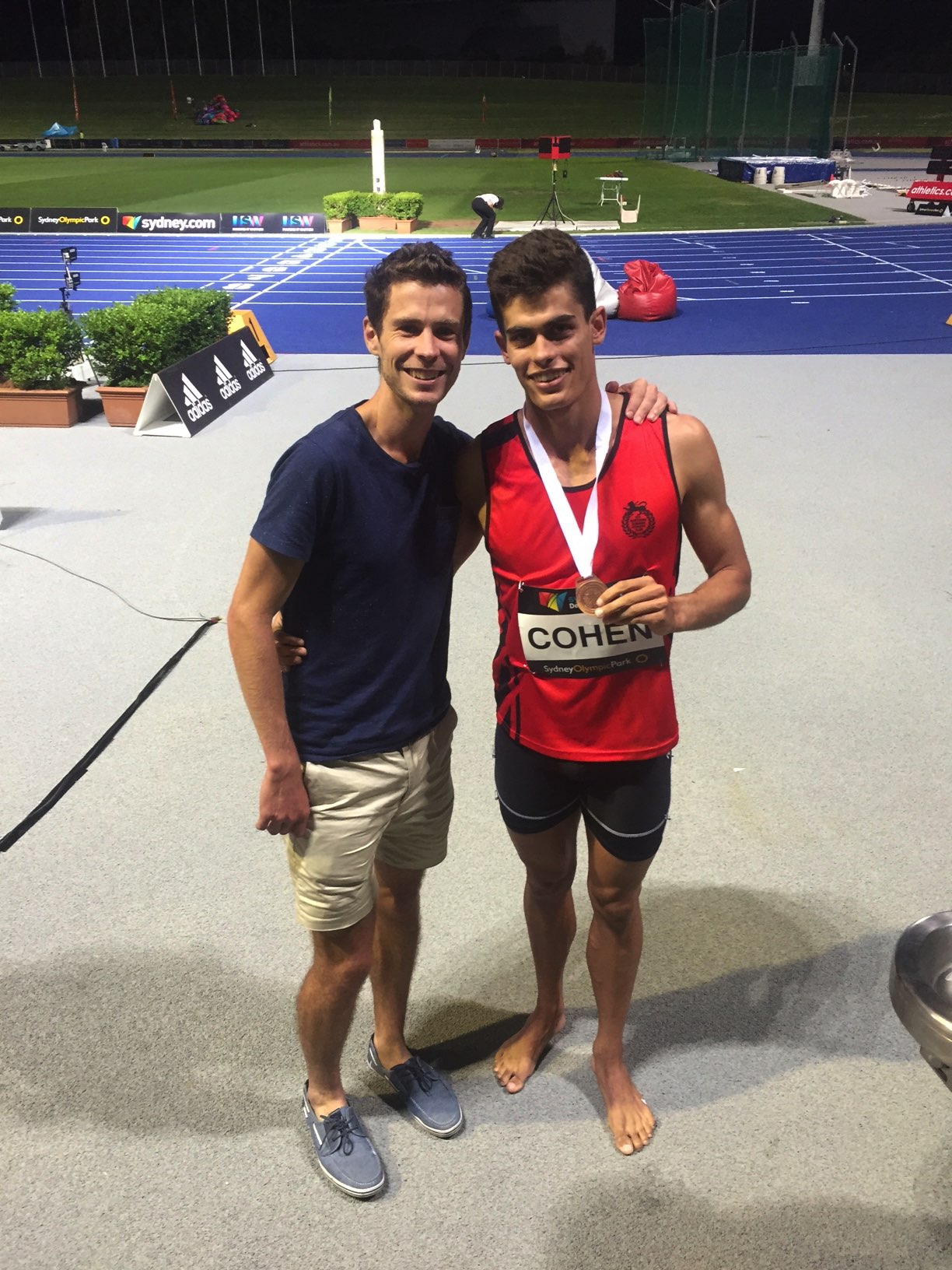
During your own running career, you suffered from a few stress fractures. As a coach what steps do you take to avoid such injuries in your athletes?
Injury prevention is one of my biggest focuses with the group and something we are constantly working on to ensure we get better at. Firstly I like to observe all the athletes at each training session and see how they are handling the session. I like to talk to them before each session and let them know the goals for each session. Understanding this allows them to work at the correct intensity. If I feel watching them that the desired outcome of the session is not being achieved due to fatigue or some other factor then we will have a discussion about whether we should modify the session or in some instances abandon the session. This can be difficult for highly motivated athletes to do and that is where trust in the coach is so important.
I like my athletes to keep detailed training journals. We have recently started using a spreadsheet (thank you Rod Griffin and Ken Green) that allows me to see how each athlete is handling the training load. A lot of it is based on perceived exertion level and total kilometres completed each session. The data is based off formulas generated from the AIS regarding injury prevention and will be a useful tool in planning future training and modifying current training. We are in the very early days of this but I’m excited to see the results we can get from it.
I also get my athletes to come to our Physiotherapy Clinic Central Performance and receive regular treatment. I think waiting for something to get sore isn’t good management so they have a regular session at our clinic at least each month where we try to prevent any injuries from occurring in the future.
A lot of the group also have their own strength coach and I think this is vital in keeping them injury free. David Costello from ‘TheRightFit PT’ has been great in working with Mason over the last 2 years. Mason has had very minimal time off due to injuries and in working with Dave was able to be as strong and as light as he ever has through last season.
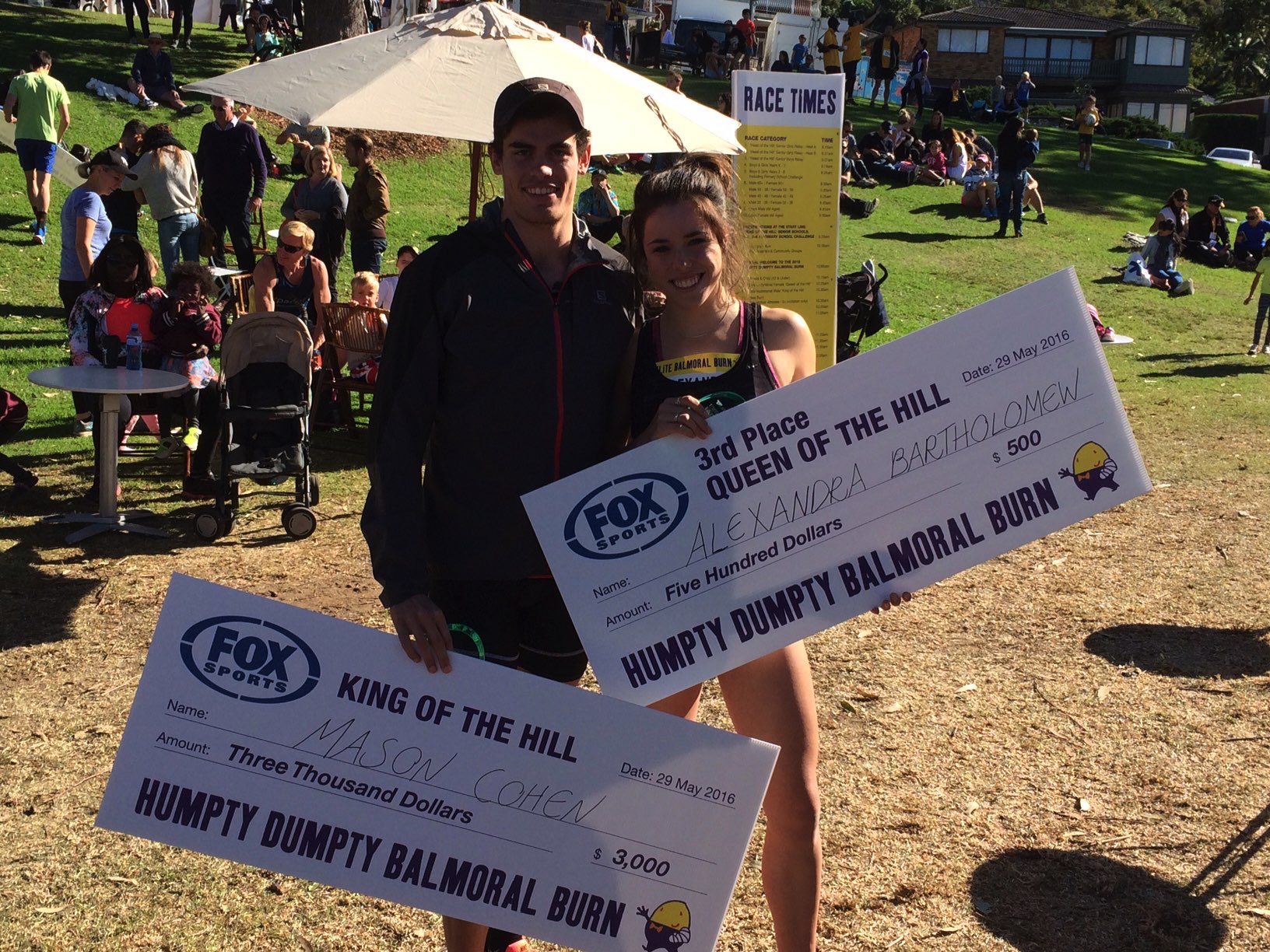
Over the years we have seen top athletes like Jeremy Roff, Steve Moneghetti, Robert de Castella all put together years and years of uninterrupted training with few injuries. Are these guys born with bodies that don’t break? Or coached right? Or both?
Good question. However, I think if you asked Roffy about his injury history the last few years he might disagree with the above statement. In his early years though he was able to put years of consistent training together which undoubtedly allowed him to become one of Australia’s best 1500m runners.
I definitely think coaching has a big part to play in keeping athletes injury free. Not only from a programming point of view and ensuring there is adequate load progression and recovery in the program but also getting the athletes themselves to understand how to read their bodies better. If we stopped for every niggle then not a lot of training would get done but being able to understand which types of soreness are ok to run through requires a lot of discipline and self-awareness from the athlete. I think coaches can help athletes to understand when they need to be smart and take a couple of days off to prevent a niggle from turning into something more serious or when it’s ok to continue training.
I’m not sure if there are guys that are born with bodies that don’t break. There does appear to be some athletes that seem to be able to do large amounts of training without ever getting any injuries. But I’m not sure if that’s because they were genetically blessed with a robust body or more because they’ve sensibly built their training up over the years so their body has gradually adapted to high training loads and now they’re very injury resistant. I think a lot of the best athletes are also the smartest at reading their bodies. They know when to back off in a session so they don’t get unnecessarily fatigued or sore making them more susceptible to injury.
Do you integrate your physio work into the coaching side?
As mentioned earlier I encourage all the guys to come into our clinic and receive regular preventative treatment. However, if I suspect they may have something more than just regular training soreness I’d prefer they see one of my colleagues so they can receive an objective opinion about their injury and how to progress back to full training.
Does your group get recovery days completely off?
Yes. Every athlete has one complete day off each week. Potentially in the future some of them may build up to training 7 days a week but at the moment I’d prefer to err on the side of caution with them. While they are continuing to improve on 6 days/week training I’d like them to continue with it.
I also schedule recovery weeks into their training programs each month to allow them to absorb the previous month of hard training and also to try and recover from any niggles that may have accumulated over the previous training block. Also, I think it’s important to come to the track and have some sessions that you can be mentally relaxed for and finish feeling strong and controlled.
Let’s take one of your chargers; 1:47 man Mason Cohen. What sort of mileage is he doing during this base period? How far away is he from top speed over say 60m at any stage during this winter base phase?
Mason will run around 60-70km each week until we get into the middle of the racing season where this will likely drop down. In regards to his top speed, he is never too far away from this at any stage of the year. We include regular speed work year round so I’d expect him to be able to run fast over 200m at any point in the year.

Thoughts on what it takes to be a 1:44 runner. What sort of pure 200m/400m speed does a runner need as a minimum? Thoughts on 800m runners who clock gigantic mileage?
Until I coach someone to run 1.44 I guess I won’t really know but I believe the modern day 800m runner needs to be very fast over 200m and 400m. I’m sure people will have differing beliefs but I’d be expecting them to run a minimum of 22 seconds and 47 seconds for the 200 and 400 respectively. Of course, there will be exceptions but I think if you look at the majority of athletes who have run 1.44 or quicker over 800m many of them have either recorded fast 400m times or have the potential to run very quick over 400m based on how fast they come through the 400m in an 800m race.
In regards to gigantic mileage for 800m runners it’s probably not the way I go about coaching the event. Yes it may work for some but are those runners actually 1500m or above athletes who happen to run a good 800m as well? As I said I think the modern day 800m runner needs to be very fast over 200m and 400m and I can’t see how you can truly develop this area while running very high mileage. However, I’m new to the coaching scene and always happy to learn from people with more experience so I’m not saying I would never do it but I don’t think it’s the most efficient way of preparing an 800m runner.
Your favourite 800m runner of all time?
Wilson Kipketer without a doubt. He was so smooth over the 2 lap event and took the long standing WR away from Seb Coe. He tied the world record and then finally broke it in Zurich before going on to break it again later in the season in Germany. When he first broke the record I remember him going through the first 400 in 48 seconds………..Crazy! His dominance over the event was incredible. He was never quite the same after he contracted Malaria and I was so disappointed he didn’t win Gold in Sydney after missing out on the opportunity to run in Atlanta.
END



